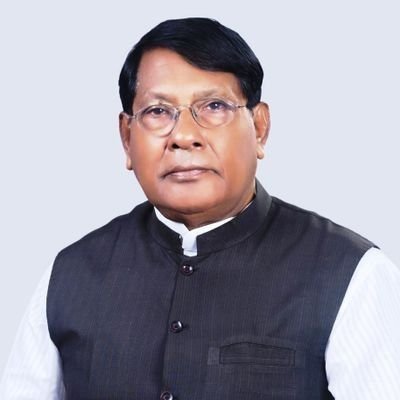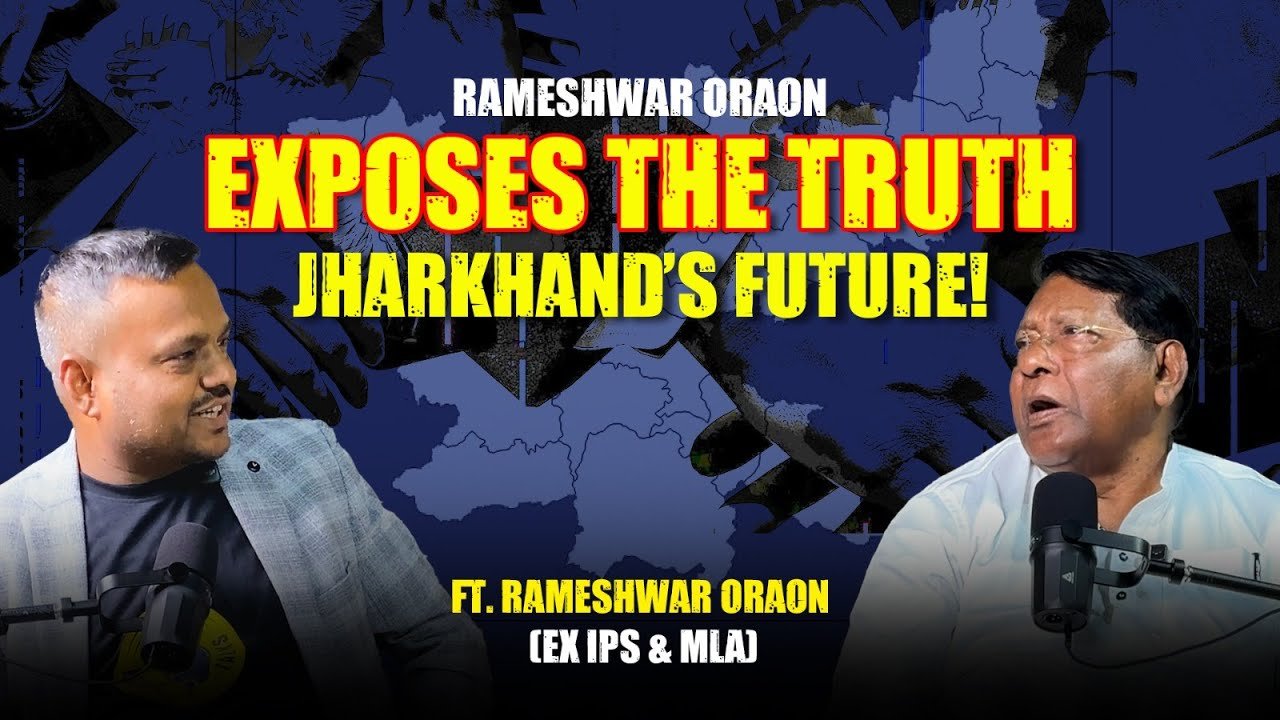A Child of the Soil
In a sleepy tribal village east of Daltonganj, a boy was born into modest means but limitless ambition. Farming lands nourished the family but offered little else. Yet, in that rural simplicity bloomed a mind curious and a soul determined. That child was Rameshwar Oraon.
Raised by a family where education was a luxury and expectations modest, Oraon’s early life was guided not by wealth, but by powerful maternal figures—his mother and sister-in-law. Both women, though unlettered, fiercely believed that education was the only path to empowerment. His sister-in-law, illiterate herself, still championed his studies, urging him onward.
When Oraon aced his matriculation exams, the village buzzed with pride. “Teach him,” elders said. “He’s meant for something bigger.”

From Books to Badges
He followed the advice of mentors and studied economics at Patna University. But his journey wasn’t just academic—it was filled with self-doubt, challenges, and relentless perseverance. After MA, he moved to Delhi and cleared not one, but three prestigious national exams: for the SBI Probationary Officer, Indian Economic Service, and Indian Police Service.
He chose the IPS—not for glamour, but purpose. He believed that policing, when done right, could be a force for justice, especially for the oppressed.
Policing with Compassion
His career as an IPS officer began in the turbulent 1970s—during the JP Movement and India’s Emergency. While chaos reigned, Oraon led with calm. His leadership in Sasaram during the JP agitation is legendary—not for brutality but for innovation.
When students blocked highways, he didn’t baton them. He asked them simple questions—”Who is the Prime Minister of India?”—and their embarrassment drove them off more effectively than any lathi charge.
“I believed in treating people with dignity, especially the youth,” he said. “We were all young once.”
The Emergency and Ethics
Oraon bore witness to India’s 1975 Emergency, where civil liberties were suspended. Unlike many officials, he refused to misuse power.
“We enforced the law,” he said. “But never with cruelty. Discipline came to the country, yes, but fear isn’t the way to govern.”
His police tenure was marked by balance—firmness, yes, but always with humanity.
From Uniform to Politics
In 2004, Oraon retired voluntarily from the IPS to serve people from a new platform—politics. Offered the chance to stay on as a Director General of Police, he politely declined.
“I had a new calling,” he said. “Not just to enforce law, but to shape it.”
He joined the Congress Party, drawn by its national character and legacy. His family, historically Congress supporters, embraced the shift.
A Finance Minister with a Conscience
As Jharkhand’s Finance Minister, Oraon walked into a broken treasury—but walked out with reforms. His biggest wins?
- Tripling professional tax revenue through campaigns.
- Doubling electricity duty income while ensuring fairness.
- Generating ₹500 crore in forest revenue, up from nearly nothing.
- Fighting against fiscal waste, especially on vanity projects.
He also pushed for fiscal discipline, even during the COVID crisis, and prioritized social welfare schemes like the Maiya Samman Yojana.
Yet, he laments missed opportunities: “Mines and transport revenue—two of our biggest resources—remain underutilized. Corruption is the thief here.”
Jharkhand: A Dream Deferred
Despite his contributions, Oraon is painfully candid about Jharkhand’s failures.
“24 years since statehood, and what do we have?” he asks. “Colleges without teachers. Universities without principals. Students without guidance.”
He cites examples—like Vinobha Bhave University, with only 2 full-time principals across 7 colleges—as symbols of a crumbling education system.
“Education is our first step to change. Without it, all else is lost.”
The Ghost of Conversion
On tribal conversion, Oraon walks a fine line. He recognizes the deep inroads missionaries made through education and healthcare in underserved areas.
But he also questions the methods: “Saying you can cure AIDS or raise the dead with blessings? That’s deceit, not faith.”
He believes the government must curb exploitative conversions, not with laws alone, but by offering comparable services through state systems. “You can’t stop conversions without providing alternatives.”
Between Kejriwal and Corruption
Oraon doesn’t shy away from calling out fellow politicians, even allies. On Arvind Kejriwal, he’s blunt:
“The man who came to clean politics is drowning in it. Liquor scams? What irony.”
Still, he admires Rahul Gandhi’s persistence, calling him hardworking and resilient. “He may not be flashy, but he has vision.”
Lalu, Leadership & the Legacy of Jungle Raj
Having worked closely with Lalu Prasad Yadav, Oraon defends him fiercely.
“He wasn’t perfect, but he practiced social justice, not just preached it,” he insists. “Yes, crime rose. But political patronage of criminals wasn’t just his party—it was systemic.”
He admires Lalu’s commitment to uplifting backward castes, though admits the kidnapping era in Bihar was a dark chapter.
Youth, Reels, and Responsibility
Oraon worries deeply for the youth. “Addicted to phones, reels, and illusions,” he sighs. “Where is the hunger to work?”
But he doesn’t blame them. He blames leadership. “We give them free rice, not reasons to rise.”
He urges leaders to go beyond populism. “Free food fills stomachs. But only education fills futures.”
The Power of Politics, When Done Right
When asked if politics disappointed him, Oraon smiles.
“Not at all. Politics gave me a platform to help—whether it was getting roads built or getting an innocent boy out of jail.”
He shares stories of how villagers sought his help not for money—but for justice, dignity, and basic rights.
“It’s not about becoming a minister. It’s about becoming a medium for change.”
What Makes a Leader
For Oraon, leadership is not about loud speeches but deep understanding.
“Guruji (Shibu Soren) was a true mass leader. Hemant is still learning. A true leader doesn’t need power to stay relevant.”
On his own role, he remains humble: “I’m a servant, not a ruler.”
The Road Ahead for Jharkhand
Oraon believes Jharkhand has the potential to be a tourism and industrial hub. But poor law and order, systemic corruption, and lack of vision have scared investors away.
He dreams of a Jharkhand where:
- Industries thrive without red tape.
- Tourists flock to its waterfalls and forests.
- Students stay for education, not flee for better states.
But for that, he says, “We must first fix our house. Fix our mindset.”
The Final Reflection
At the end of it all, Oraon—now in his twilight years—remains energized. He writes, reads, mentors, and dreams still.
Asked what he’d do if he had a second chance at life, he says, “I’d probably study law. Maybe become a lawyer. Justice still needs warriors.”
And what’s his message to the youth?
“Work hard. Don’t get swayed by distractions. Remember: a good life isn’t given, it’s earned.”

No responses yet